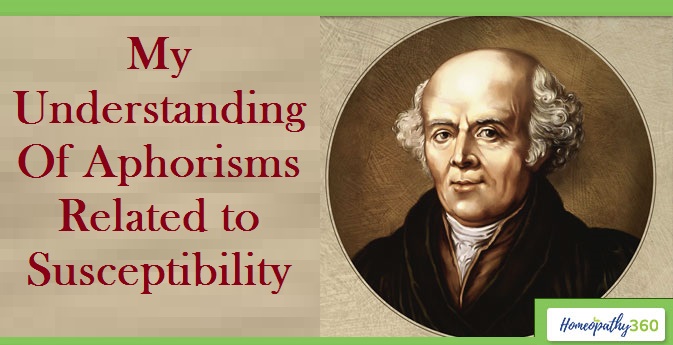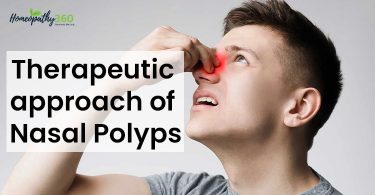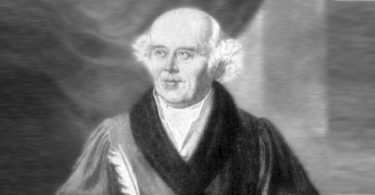
Susceptibility is explained in the aphorisms 30,31,32,33 & 34.
Susceptibility is the reaction of Vital force towards the external stimuli. It varies person to person. Our master elaborated it in Organon of Medicine.
Aphorism 30-
“ The human body appears to admit at being much more powerfully affected in its health by medicines (partly because we have e the regulation of the close in our own of power) than by natural morbid stimuli- for natural diseases are curved and overcome by suitable medicines”.
Analysis: Since we have in our hands the power to regulate s the doses, the human body is more early influenced by medicines than by natural disease. The natural diseases are cured by suitable medicines.
Aphorism 31-
“ The inimical forces , partly physical to which our terrestrial existence is exposed ,which are termed morbific noxious agents do not possess the power of morbidly deranging the health of man unconditionally , by we are made ill by them only when our organism is sufficiently disposal and susceptible to the attack of the morbific cause that may be present and to be altered in its health , deranged and made to undergo abnormal sensations & functions hence they do not produce disease in every one nor at all times.
Analysis:
- The inimical forces, termed as morbific noxious agents can derange the health of human only under certain conditions, i.e. They cannot act unconditionally.
- These can cause sickness only when the human organism is sufficiently disposed & susceptible to the attack.
Aphorism 32-
“But it is quote otherwise with the morbific agents which we term medicines. Every real medicine namely act at all times under a;; circumstances , on every living human being and produces in him its peculiar symptoms (distinctly perceptible , if the dose be large enough), so that evidently every living human organism is liable to be affected , and as it were inoculated with the medicinal disease at all times and absolutely (unconditionally), which as a before said is by no means the case with natural disease.
Analysis:
- We term artificial morbific agents as medicines.
- Whenever we brand a medicines as a real one, it will work at all time under all circumstances, on every living human beings.
- It produces its own peculiar systems which are clearly distinguishable when the dose is charge enough.
- It works unconditionally. This is not the case with the natural disease as said in the previous paragraph.
Aphorism 33
- Medicinal power are much more disposed towards deranging the human organism, that the natural morbific agents and inflections measures. The medicinal agents are greatly superior to the natural morbific agents.
- What was said in the previous paragraph is separated here.
Aphorism 34 –
“The greater strengths at the artificial disease producible by medicines is however, the sole cause of these power to cure the natural disease. In order that they may effect a cure it is before all things requisites that they should be capable of producing in the human body an artificial disease as similar as possible to the disease to be cured which with somewhat increased power trans to very similar morbid state the instinctive principle which in itself is capable of any reflection or act of memory it not only obscures , but extinguishes and thereby annihilates the derangement causes by the natural disease. This is so true, that no previously existing disease can be cured even by nature itself, by the occasion strong and just as little it can be cured by medical treatment with drugs. Which are incapable of producing a similar morbid condition in the in healthy body.”
Analysis:
- The greater strength of the artificial disease produced by medicines is alone not the sole cause of their power to cure.
- The medicines must be capable of producing in the living human body an artificial disease as similar as possible to the disease to be cured.
- The greater strength in addition to the above quality it is able to cure.
The accession at a new dissimilar disease cannot cure an existing one however strong it might be.
About Author:
Dr. Shashikant B Kammar
Associate Professor, Head
Department of Forensic Medicine and Toxicology
Yenepoya Homoeopathic Medical College and Hospital
Yenepoya (Deemed to be University)
Mangalore, Dakshina Kannada
Karnataka





